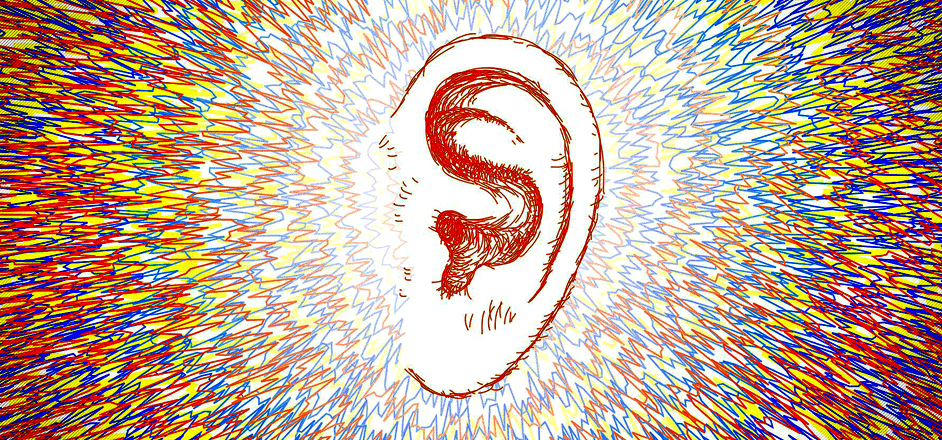Could Tinnitracks alter the world and history forever and ever Amen?
Great news, party people, the incessant ringing in your ears may soon be a thing of the past thanks to a new innovation in tinnitus treatment. Rejoice!
For those not up to speed on their medical jargon, tinnitus is the name for that obnoxious buzzing or ringing that is heard by nearly 1 in 5 people when the world outside is otherwise silent. It can be caused by a number of things, including wax build-up or just plain getting old.
However, overexposure to loud noises (like live music) is likely the culprit for sufferers in the 18-35 demographic. The condition isn’t the most concerning thing in the world (rarely is it a symptom of a more serious problem), but for those going through it, tinnitus is incredibly annoying, especially when trying to sleep.
Fortunately, relief is looming on the horizon in the form of a new buzzworthy technology called Tinnitracks. Developed by the brains at Sonormed, a German start-up, Tinnitracks is a new “prescription app” allowing users to submit their own music to be filtered and manipulated so that certain frequencies can target the hearing center in the brain while it does some sciencey things to alleviate ringing that has developed from spending every weekend at the club. According to the Tinnitracks website it basically works like this:
“The music is filtered to remove the specific frequency that causes the patient's tinnitus. This creates an audible notch in the sound spectrum of your music. In other words, it slightly alters the sound. Your sense of hearing, however, is able to quickly adapt to this unfamiliar input. This systematically changed input – generated by filtering your music based on your individual tinnitus frequency – can cause the brain to re-shift its imbalance between excitatory and inhibitory nerve signals in the auditory center back towards a healthy balance between the two.”
It’s tough to say whether Tinnitracks will be a complete cure for tinnitus, but it's still a promising step in the right direction for many people who are tired of dealing with the constant head-ringing. Unfortunately, the treatment isn’t available in the U.S. just yet. Until it is released, however, it's as good a time as any to start taking precautions to protect hearing while you still can.
One of the easiest yet most overlooked ways to protect yourself is to start being "that guy" who wears earplugs in loud environments, like concerts and nightclubs.
Obviously, no one wants to block out all of the sound at a concert by jamming foam plugs in their ears (those tickets are expensive!), so it's recommend to invest in a nice pair of hi-fidelity earplugs that are made specifically for loud music. Though there are some pricey options out there, a pair of Downbeats, Earpeace or Hearos will run you about $10-20 and are completely worth the small investment. Hi-fi ear plugs (a standard pair of Downbeats in this case) will cut the noise by about 18 decibels and filter out deafening feedback and distortion, allowing only good quality sound to reach the eardrums. Apart from enhancing audio, the best part about them is that most brands are washable, reusable, and hardly noticeable. Downbeats even makes clear plugs that are all but invisible.
Good earplugs can enhance a concert or club experience immensely by giving a cleaner sound and less “sonic hangovers” when attempting to sleep after a show. Having something in your ear may not be the sexiest look ever, but it’s a sacrifice that ought to be considered. Think of earplugs like condoms. They can be a little inconvenient and uncomfortable, and most people prefer to go without them, but like condoms, wearing them is way better than the alternative which is lifetime of annoying noise in your ears.
Whether that noise is from tinnitus or a baby is up to you.


Leave a Reply
You must be logged in to post a comment.